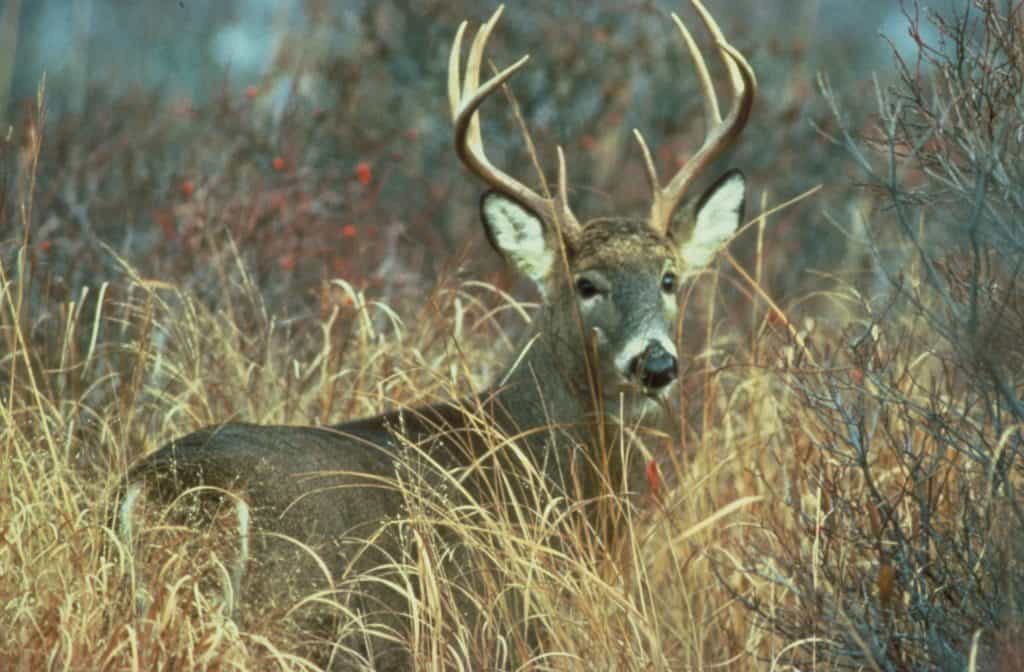Anne Arundel Venison Food Relief Program Sparks Bounty Controversy

Program to Continue Despite State Backlash
By Brenda Wintrode
When Anne Arundel County Executive Steuart Pittman and his team introduced a plan in November meant to feed the hungry during a pandemic while helping to protect farmers’ crops, he never imagined the blowback he would get from state officials and lawmakers.
“I was actually shocked that there was any concern about this,” Pittman said.
The program, which began on Nov. 1, pays hunters $50 for each deer they donate to the Anne Arundel County Food Bank and pays a butcher to process the venison, supplying the food program with a source of protein.
The county funds the program with its Coronavirus Aid, Relief, and Economic Security Act, or CARES Act, grant, and the Anne Arundel Economic Development Corporation facilitates the program.
The county executive, a Davidsonville farmer who has experienced deer eating his crops, said he thought “it would be a very simple fix.” Record unemployment numbers due to pandemic-related business closures have increased the number of food-insecure families and driven demand for donated food.
But within two weeks of the Venison Food Relief Program’s rollout Pittman received letters from state Sen. Jack Bailey (R-Calvert and St. Mary’s) and Maryland Department of Natural Resources Secretary Jeannie Haddaway-Riccio saying the program violated a state law prohibiting any “exchange” for a game animal.
Maryland DNR confirmed with the Attorney General’s Office that not only would paying hunters for deer break state law, but so would direct payment to butchers for the venison processing, according to the letter.
Haddaway-Riccio said the program places participating hunters and processors in a “legally precarious” position and told Pittman that DNR and the Office of the Attorney General are willing to help the county revise the program. But her letter stopped short of telling the county to end the program, which is set to expire at the end of the year.
“To me it’s just the epitome of big government getting in the way of progress with unnecessary regulation,” Pittman said.
The payment to hunters may be considered a “bounty,” according to Bailey’s letter. The retired DNR officer said he was concerned hunters and the county would be committing criminal acts by participating in the program.
Pittman said the program does not provide an incentive to hunters but reimburses “the expenses of the people who are trying to help solve this problem.” Farmers and hunters he’s spoken to say the $50 direct payment is “essential” to increase hunter participation.
DNR issues crop damage permits to farmers to kill nuisance deer during the off-season, but only if the farmer proves deer damage. But deer kills from crop damage hunting are low. During the 2019–2020 season only 5% of deer killed were from crop damage hunting and just over 12% statewide, according to the DNR’s annual deer report.
The county plan originated during a meeting Pittman had months ago with South County farmers in a Lothian hay barn owned by fourth-generation farmer Jeff Griffith. Griffith said the group shared their concerns with Pittman about crop damage caused by deer.
“We’re going broke,” said Griffith, who grows primarily soybeans, corn and hay. “All of our profit is being eaten up by the deer.” Griffith says he has lost $50,000 to $60,000 in crop revenues annually, over the last 10 to 15 years, because of the deer.
Directing donated venison to the hungry has been the goal of one Maryland nonprofit that has paid butchers’ processing fees for over 20 years. Josh Wilson, executive director for Farmers and Hunters Feeding the Hungry, says they pay for about 1,500 deer preparations a year all over the state, including in Anne Arundel County. Unlike the county program, the nonprofit does not give money to hunters.
“DNR has been supportive of our program over the years and encourages hunters across the state to consider donating any extra deer they harvest to FHFH at one of our participating butchers,” Wilson said.
There’s also a state program that gives hunters a tax break on butcher’s fees when they pay in full for the processing of donated meat. The venison donation income tax credit, new in 2018, allows hunters donating venison to food banks or food charities to get a $50 tax credit per deer, not to exceed $200 a year, with a butcher’s receipt.
For now, the county will move ahead with the food relief program. Pittman said, “We think they’re wrong on the legal side of it, and we feel good about what we’re doing.”
Firearm season for antlered white-tailed deer begins Saturday.
